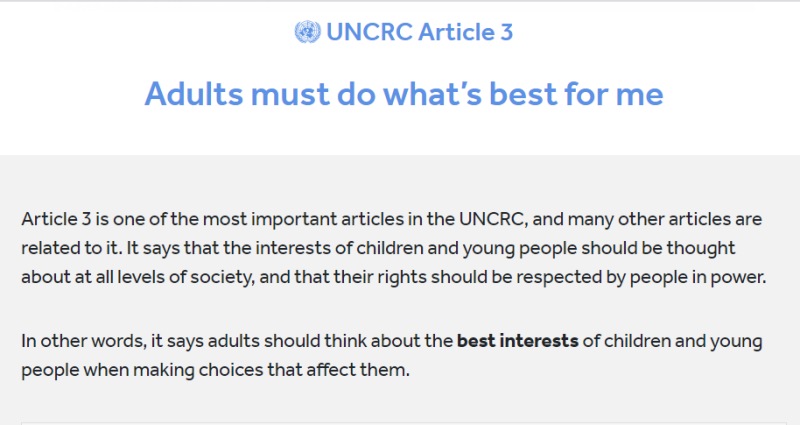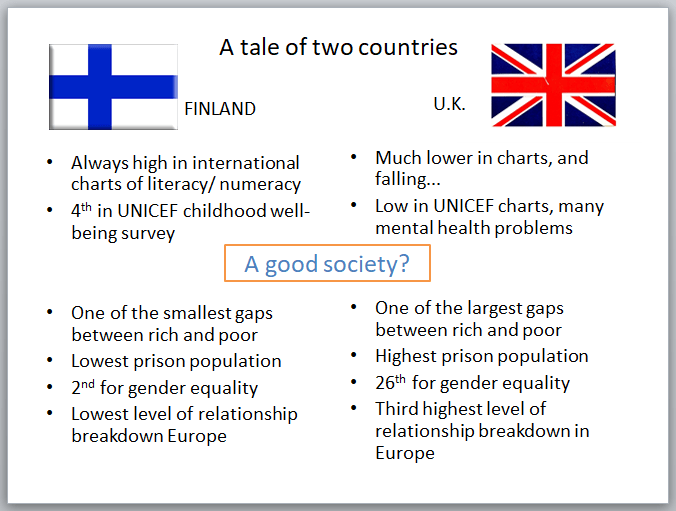
Sue Palmer
Over the last week, I’ve realised just how important it is to incorporate the United Nations Convention of the Rights of the Child (UNCRC) into Scots law.
The first signpost to enlightenment was passionate tweets from the Give Them Time campaign about some local authorities forcing four-year-olds to start school despite their parents’ conviction that it is not in their children’s best interests.
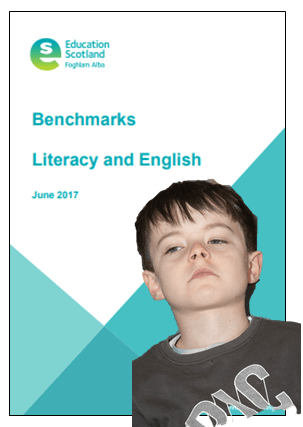 Next came howls of outrage from a number of children’s organisations (including Upstart) when we discovered that, despite the immense disruptions of this COVID year, five-year-olds are still expected to sit the Scottish National Assessments (SNSAs) in literacy and numeracy when they return to school after lockdown.
Next came howls of outrage from a number of children’s organisations (including Upstart) when we discovered that, despite the immense disruptions of this COVID year, five-year-olds are still expected to sit the Scottish National Assessments (SNSAs) in literacy and numeracy when they return to school after lockdown.
Then came an outcry from parents, teachers and children’s organisations at a range of suggestions for post-COVID educational ‘catch-up’ for all ages of children, including lessons during the summer holidays and an extension of the school week.
Essentially, all three complaints related to our educational system taking a ‘business as usual’ approach during a year in which children and young people have suffered severe stress, anxiety and – in many cases – trauma. The long-term physical, emotional and social effects of this pandemic on developing bodies and minds are yet to be seen but, at a meeting this week with around eighty educational psychologists and other professionals from children’s services, there was huge anxiety about the lack of capacity in our mental health services to deal with the fallout.
Children’s mental health
In a harrowing podcast (scroll 23.40 mins from the start), an Edinburgh head teacher said that, in thirty years of teaching, he had never seen so much evidence of mental health problems among his pupils. He cited an increasing incidence of anxiety and depression among teenagers and fear and confusion among the three- to six-years age range (for instance, children afraid to go on play-dates because ‘someone might die’).
 His independent school caters for wealthy families with large homes and gardens … so just try to imagine the extent of the problems for children from disadvantaged homes who’ve spent four months of the past year locked down in cramped conditions with highly stressed families, many of whom are struggling with their own physical and mental health problems, not to mention the problem of putting food on the table.
His independent school caters for wealthy families with large homes and gardens … so just try to imagine the extent of the problems for children from disadvantaged homes who’ve spent four months of the past year locked down in cramped conditions with highly stressed families, many of whom are struggling with their own physical and mental health problems, not to mention the problem of putting food on the table.
It’s now widely recognised that the mental health crisis among children and young people – spiralling out of control even before COVID – has been hugely exacerbated by the pandemic. The last things Scotland’s children need at the moment are a too-early start on formal schooling, stressful time-consuming tests and extra time in classrooms being crammed by exhausted teachers to pass exams.
As Suzanne Zeedyk put it in a recent tweet: ‘The more we use the language of ‘catch up’, the more we normalise the idea this is a thing that is even possible. This is the language of anxious adults. It isn’t about children, it isn’t about Getting It Right For Every Child and it isn’t in line with the UNCRC.’
Healthy children, healthy society
My last-but-one blog, Build Back Upwards, described how Scottish policymakers continue to focus on the 2015 National Improvement Framework’s plans to close the ‘poverty-related educational attainment gap’ between rich and poor. Yet, after five years of tremendous investment of funds and effort, the education gap hasn’t narrowed while the poverty gap has widened… and they still believe that, if teachers and children ‘just try harder’, all will be well.
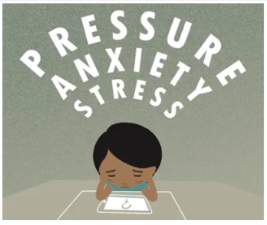 I can’t be the only person in Scotland who finds it distressing that children are expected by politicians to carry the burden of closing a poverty gap that’s existed for centuries. And what about the other enormous gap of the last decade – between Scotland’s ambition to Get It Right For Every Child (GIRFEC) and the lack of support for children’s long-term well-being and mental health?
I can’t be the only person in Scotland who finds it distressing that children are expected by politicians to carry the burden of closing a poverty gap that’s existed for centuries. And what about the other enormous gap of the last decade – between Scotland’s ambition to Get It Right For Every Child (GIRFEC) and the lack of support for children’s long-term well-being and mental health?
It’s all very well to blame Westminster-imposed austerity for the lack of learning support assistants for children with additional needs, but what are we doing to try and prevent ‘additional needs’ arising in the first place? And to decrease the stress on all our children from an educational system possessed by tests and exams (in a culture where commercial pressures and social media already put them under extreme pressure to be ‘practically perfect in every way’).
I’m a great fan of Curriculum for Excellence, GIRFEC and other recent policy documents but – like so many others – I feel growing despair at Scotland’s lack of success in translating this glorious rhetoric into reality.
Let’s rely on trust, not control
Back in 2018, I wrote about the difference between the Finnish and Scottish education systems, and the long-term advantages of a system that works on trust (trusting children to learn, teachers to teach and parents to see how well that works) over a system based on control (where accountability, data-gathering and bureaucracy disempowers everyone but the policymakers).
I’ll leave it to other pens to dwell on how to organise the switch from control to trust in Levels 1 to 4 of CfE, but at Early Level we now have a perfect formula, based on the science of child development: the new practice guidance for early years, Realising the Ambition: Being Me. My admiration for the people whose pens produced this document is boundless – but I don’t see how the Early Level workforce can put it into practice while their political masters are still obsessed with data-collection.
If only our educational elite would stop fixating on pre-COVID policies and trust Scotland’s army of dedicated professionals to Get It Right For Every Child, perhaps we could, as time goes on, reach the same broad sunlit uplands in education and mental health as Finland. (And OK, Finland isn’t perfect – where is? – but it’s doing a whole lot better than we are!)
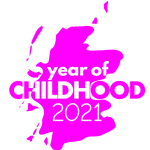 Fortunately this is Scotland’s Year of Childhood, celebrating the incorporation of UNCRC. The Convention treats children like human beings – not cogs in a machine – and expects adults to act in those children’s best interests, as opposed to forcing them to fit into an outdated, bureaucratic system. I recommend the educational officials, policy-makers and academics behind the three outcries described at the start of this blog to READ IT!
Fortunately this is Scotland’s Year of Childhood, celebrating the incorporation of UNCRC. The Convention treats children like human beings – not cogs in a machine – and expects adults to act in those children’s best interests, as opposed to forcing them to fit into an outdated, bureaucratic system. I recommend the educational officials, policy-makers and academics behind the three outcries described at the start of this blog to READ IT!


